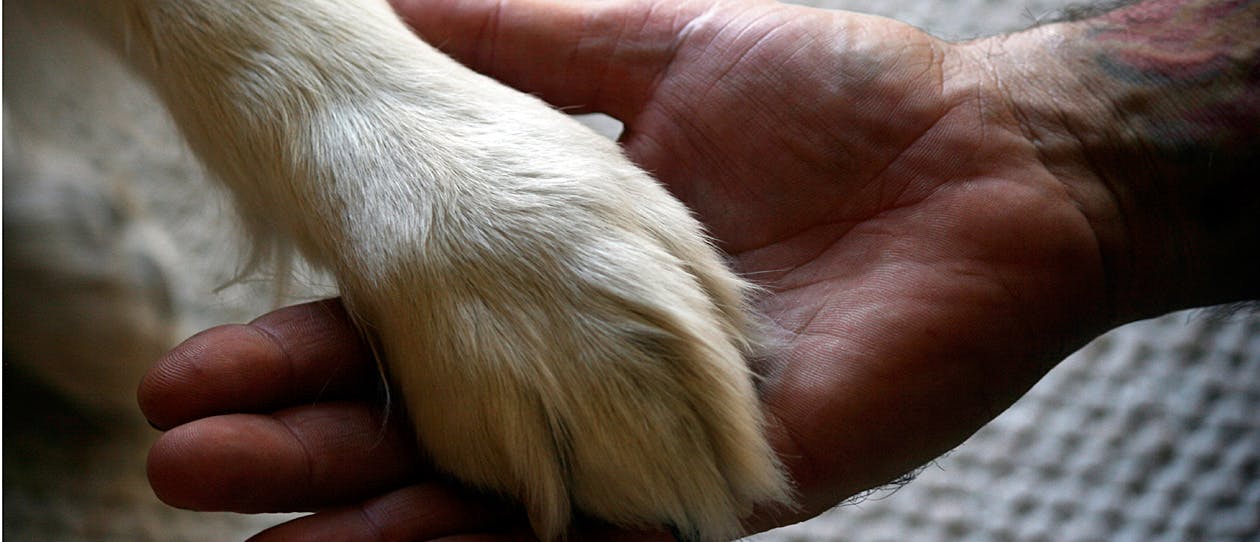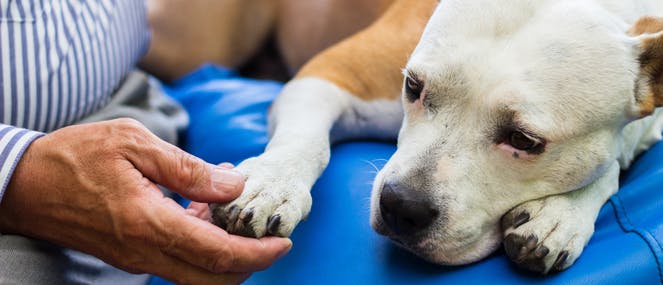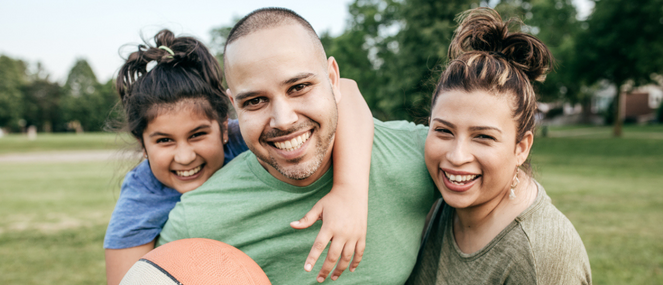
- PAW by Blackmores/
- A Guide To Perfect Your Pet's Health/
- Health and Vitality Products For Your Dog/
- Digger dogs to the rescue


As you can imagine, coming back from a tour of duty is far from simple. The Australian Defence Force says it’s estimated that approximately 8.3% of ADF members will have experienced PTSD in the last 12 months, which is significantly higher than in the Australian community (5.2%). And the issues extend beyond the digger themselves – combat related post-traumatic stress also often affects the soldier’s family.
The Dogs for Diggers program began in September 2012 in partnership with Young Diggers, a non-profit veteran welfare group that provides support to returned Australian service personnel and their families.
The program, run out of Bathhurst Prison, has been hailed as a win-win program all round - the dogs providing support and companionship to diggers, and the dogs getting a new chance at life (many are neglected, abused or facing death row). The carefully selected minimum security inmates responsible for training the dogs are gaining new skills and a strong sense of responsibility, which helps them reintegrate into society when they’re released.
John Jarrett, President and Welfare Officer of Young Diggers, has seen first-hand, time and again, how the assistance dogs rebuild lives, self-confidence and self-worth. He says the highly trained dogs help improve the diggers’ psychological and emotional state, break down the barriers of isolation and loneliness, and restore confidence.
“A lot of these soldiers are too anxious and distressed to go into public places. That is, until they get their dogs,” says John. “We’ve had soldiers returning from combat on a dozen different medications, who are no longer reliant on any medications at all. And they put it down to their dogs saving their lives.
He says soldiers are smiling within minutes of meeting their dogs. “One ex-soldier’s depression was so debilitating; she hadn’t been able to leave her home for 15 years. The day after getting her assistance dog, she and her new companion joined us at the local RSL for dinner. She does her shopping now, and has recently been on holiday to Tasmania with her dog and carer. It’s just turned her so far around.”
The dogs are trained to sense when troops are depressed, angry, feeling really bad or in a lot of pain. “The dogs do a lot of little tricks as well as being an assistance dog, and they actually bring the troops out of their depression just by having their personality and doing funny things.”
How does the program work?
Once selected for the program, rescue dogs are paired with an inmate to undergo six months of training, under the supervision and guidance of a qualified professional dog trainer and renowned Australian dog trainer, Steve Austin.
The dogs mainly come from the local area (some from pounds and shelters, others are strays), rel="noopener noreferrer" and online organisation Pet Rescue has played a huge role in recruiting suitable dogs for the program.
The dogs and inmate trainers’ complete intensive community service work by regularly visiting aged care facilities, and schools for children with disabilities and behavioural issues. They are also taken by the inmates to local shopping centres to complete 45 hours training in high distraction areas – this is to prepare them to act appropriately when they are confronted with food, smells and large crowds of people.
Once the dogs complete and pass their training, the Young Diggers selects a suitable recipient. The trainers will then spend five days teaching the digger the appropriate commands and any special needs of their new dogs.
Want to help? Each dog costs $2,500 to rescue and train to become an Assistance Dog. Find out more information here about how you can make a donation to help fund other valuable support services or programs.





